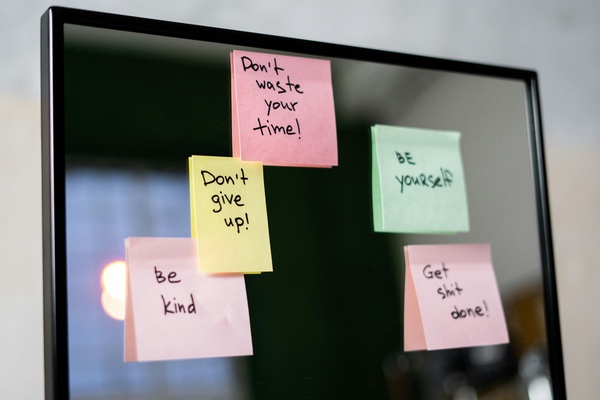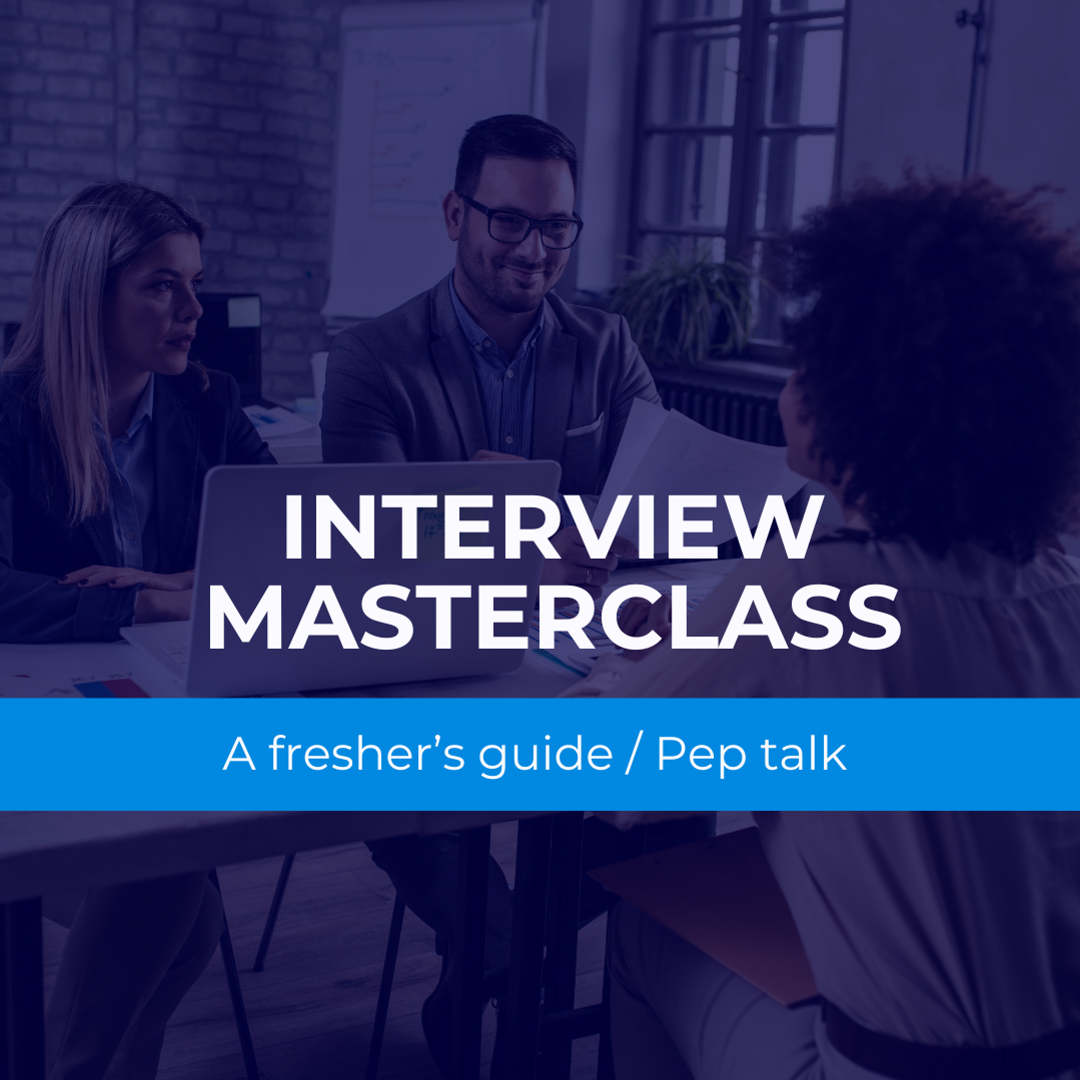CATEGORIES
#Careers #Education and Life Skills #Young LeadersOverview:
- Interviews can be cracked with mindset and attitude.
- Thoroughly research the company to strategize each response.
- Good conversation is the key to win over the interviewer.
- Confidence comes from consistent rehearsal of answers and beats pre-interview anxiety.
A job interview is like a magical portal. It teleports a person from the land “I want to become…” to the mountain-top of “I am”. On the flip side, it can be scary and nerve-wrecking, especially for freshers.
This comprehensive guide is much more than a list of tips and tricks. It is a pep-talk, even a masterclass, for those awaiting their chance before the magical portal.
The ‘Interview Mindset’
An Interview is a two-way street. For interviewers, it’s a litmus test to check a candidate’s qualification. And, interviewees use it to gain insight into the company. Perceiving it to be a professional assessment of success or failure is tomfoolery. Such thoughts only make one nervous and bound to fumble.

Here is how you can flip the script and stand out from other candidates:
1. Know Your Company Well and Your Interviewer Better
Visit the company’s official website and thoroughly map out the ‘About Us’ section. This will give you an idea of the organization’s mission and vision. Use this information to identify the way you can contribute to the entity. Additionally, it can also help you frame the answer for “why do you want to work here?”
Further, if you are aware of your potential interviewers, learn more about them. Use the company’s “Team/Meet the Team” section or visit their LinkedIn profiles. This recon mission’s objective is to become familiar with those on the other side of the table to gain confidence.
2. Be Confident about “What Do You Bring to the Table?”
If you’re short-listed, it is because you have value to add. Revisit your resume and, with your research on the company, prepare the answer to “Why should we hire you?”.
Your framed answer should contain three components:
- What the role demands. (Example, Post designing)
- How your role fulfills such demands. (Example, Canva editing)
- Your previous experience of employing the skill to meet the said demand.
Additionally, you can highlight why you’re meant for the role. Mention your learnings from their ‘About Us’ page and justify how you will add to their work culture.
3. Self-Assurance Breeds Respect
Keep reminding yourself that the company will be lucky to have you. This will portray you as a self-assured candidate and will earn you equal footing with the ones asking the questions.
Chess Strategies to Cease the Opportunity
Interviews and chess have a lot in common. For example, both require the right moves at the right time.

1. Control the Center
Focus on controlling the center of the interview, that is the conversation. If you can manage to keep it flowing, it will create a good rapport with your interviewer. Be prepared with stories for questions like “Tell us about the time you overcame an obstacle”. Or, “Tell us about the time you achieved/failed at something”.
Rehearse your response but don’t over-practice. Otherwise, your answer will sound robotic.
2. Right Pieces in Right Places
Review the job description and pick out keywords. For example, let’s take a job description for a social media manager. Most job description for this position reads:
“Looking for social media managers who can create social media strategy, generate compelling content, and analyze performance.”
Select keywords like ‘social media strategy’, ‘performance analytics’, and ‘campaign management’ and seed them in the conversation. This will reinforce your interest in the role and give you a segue to elaborate on your skills.
You can either seed these keywords in your introduction to prompt the line of qualification assessment questions. Or, wait for questions like “Why do you think you’re a good fit for this role?”.
3. Tactic of Deflection
The last question in every interview is, “Do you have any questions for us?”. The only incorrect answer here would be ‘No’. This is a chance to get insights into the company from someone who is already involved in it.
Prepare a list of questions beforehand. Research the company’s reviews on Glassdoor or LinkedIn and run a search for recent news related to it. Or, even a simple curiosity around, “What are your expectations from me in this role?”
In chess, deflection is a surprise move. Average candidates don’t use this opportunity well. If you can ask one impactful question at the end, it will likely surprise your interviewer in an impressive way.
Interview Horcrux: Important Questions to Prep
Some common interview questions, if answered smartly, can seal the deal for you.

-
“Can you please introduce yourself and describe your background in brief?”
Your introduction must be concise, compelling and should advocate for why you’re the right fit. Be brief about your personal and professional history. Pick important events and achievements from your journey, and use them to weave your backstory.
Conclude with something impactful. Share your reasons for applying to the company. Or, to score brownie points, quote something inspiring or funny to break monotone.
Example:
“I am a passionate storyteller who has a deep inclination for content creation and networking. During my college years, I managed my college fest committee’s blog and social media profile. This opportunity allowed me to showcase my skills of content creation and analytics. Moreover, my love for the socials led me to take courses on Canva/Meta Ads/Google Analytics. I saw your latest campaign a few days ago, and could not thank my stars enough for scoring an interview here. I cannot wait to work with your fabulous team on your brand’s next campaign of the century!”
-
“Why do you want to work at this company?”
Be specific. Never use a generic answer that can apply to any company. Mention the things that excites you about the company. For instance, its growth, inclusive culture, projects or its potential.
Example:
“I am a big fan of your creatives! As someone passionate about storytelling, I’m excited to work with a team that values impact over razzle dazzle. Honestly, this role seems like an excellent opportunity to grow whilst helping the brand engagement of the company I admire.”

-
“How will you contribute towards our company?”
Companies recruit candidates to solve/work towards an issue. This question assesses how you will fit into the existing organization.
Find the issue. Revisit the job description and go through your notes. Moreover, recall the questions asked in previous rounds. These will reveal what the company is looking for.
Connect your skills to the company’s needs and elaborate your answer using a previous experience.
Example:
“I can contribute by leveraging my creativity and social media expertise to enhance your brand’s online presence. In my previous experience of managing my club’s social media, I increased engagement by 30% over 3 months. I achieved it using targeted campaigns. With skills in content creation, analytics, and trend-spotting, I’m confident that I can craft innovative and audience-focused campaigns.”
-
“What are your greatest strengths and weaknesses?”
Interviewers ask this question to check your level of self-awareness and learn about your work-style.
Strength: Tailor your response to fit the job description and be humble while elucidating. Support your answer with an experience of achievement.
Weakness: virtue garbed as vice is not going to fly. “I work too hard” is not a weakness, and will never be. Therefore, be honest without oversharing. Avoid mentioning a weakness that might be a deal-breaker. Don’t forget to share an incident where you struggled with the weakness, and eventually overcame it.
Conclusion
An interview is not a question/answer round; it is a chance to leave a lasting impression. With these tips and tricks, you can turn an interview into a meaningful conversation. Remember, the right mindset and thorough preparation can help you unlock the magical portal to your dream job!
Frequently Asked Questions
What is a good interview answer?
Good interview answers are genuine and honest. Your response to interview questions should reflect your true personality, wit, and experience. Be comfortable in your own skin, and don’t let your anxiety take over.
How do I address an interviewer?
Check your interview correspondence/emails and identify the names and pronouns of your interviewers. Accordingly, address them as Mr./Ms./Dr. Refrain from using first names unless expressly instructed.
What is a good closing question for an interview?
Ask the interviewers, “Is there anything in my background that will keep me from receiving an offer?”
What to say at the end of an interview?
Express gratitude. Mention how impressed you are with the company. Highlight that you found the conversation to be insightful and end on an enthusiastic note.


